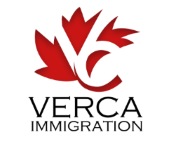Work Permit for Spouses or Common-law Partners - Part 2 of 2
Spouses of open work permit holders
If the principal foreign worker is the holder of an open work permit (for example, post-graduation work permit or IEC - Working Holiday work permit), the spouse or common-law partner is eligible to apply for an open work permit IF the principal foreign worker is working in a skilled occupation, which means be employed in an occupation in skill level 0, A or B.
It is the spousal or common-law partner’s responsibility to prove with supporting documentation that the spouse or partner is employed in a skilled position.
You are recommended to submit with your application a letter from the principal foreign worker’s current employer confirming employment or a copy of their employment offer or contract; and a copy of the principal foreign worker’s last 3 payslips.
Spouses of provincial nominee work permit holders
Spouses and common-law partners of provincially nominated foreign workers can apply for an open work permit, irrespective of the skill level of the principal applicant’s occupation.
However, the open work permit will be location-restricted to the principal applicant’s province of work. The duration will match your passport validity or the principal applicant’s work permit validity.
For Quebec cases, please check the IRCC website.
Spouses or common-law partners of full-time students
Spouses or common-law partners of certain foreign students are allowed to apply for an open or open/restricted work permits, depending on whether a medical examination has been passed.
The spouse or common-law partner who is the study permit holder must be a full-time student at either
• a public post-secondary institution, such as: a college, trade/technical school, University or CEGEP in Quebec;
• a private post-secondary institution that operates under the same rules and regulations as a public post-secondary institution in Quebec
• a private or public secondary or post-secondary institution (in Quebec) offering qualifying programs of 900 hours or longer leading to a diploma of vocational studies or an attestation of vocational specialization
• a Canadian private institution authorized by provincial statute to confer degrees (for example, a bachelor’s degree, master’s or doctorate) but only if the student is enrolled in one of the programs of study leading to a degree, as authorized by the province and not in just any program of study offered by the private institution.
The work permit will be issued with a validity date to coincide with the spouse’s study permit unless the applicant’s passport expires sooner.
What is a common-law relationship for Immigration purposes?
In the immigration context, a common-law partnership means that a couple has lived together for at least 12 consecutive months in a conjugal relationship.
Click here for Work Permit for Spouses or Common-law Partners - Part 1 of 2
